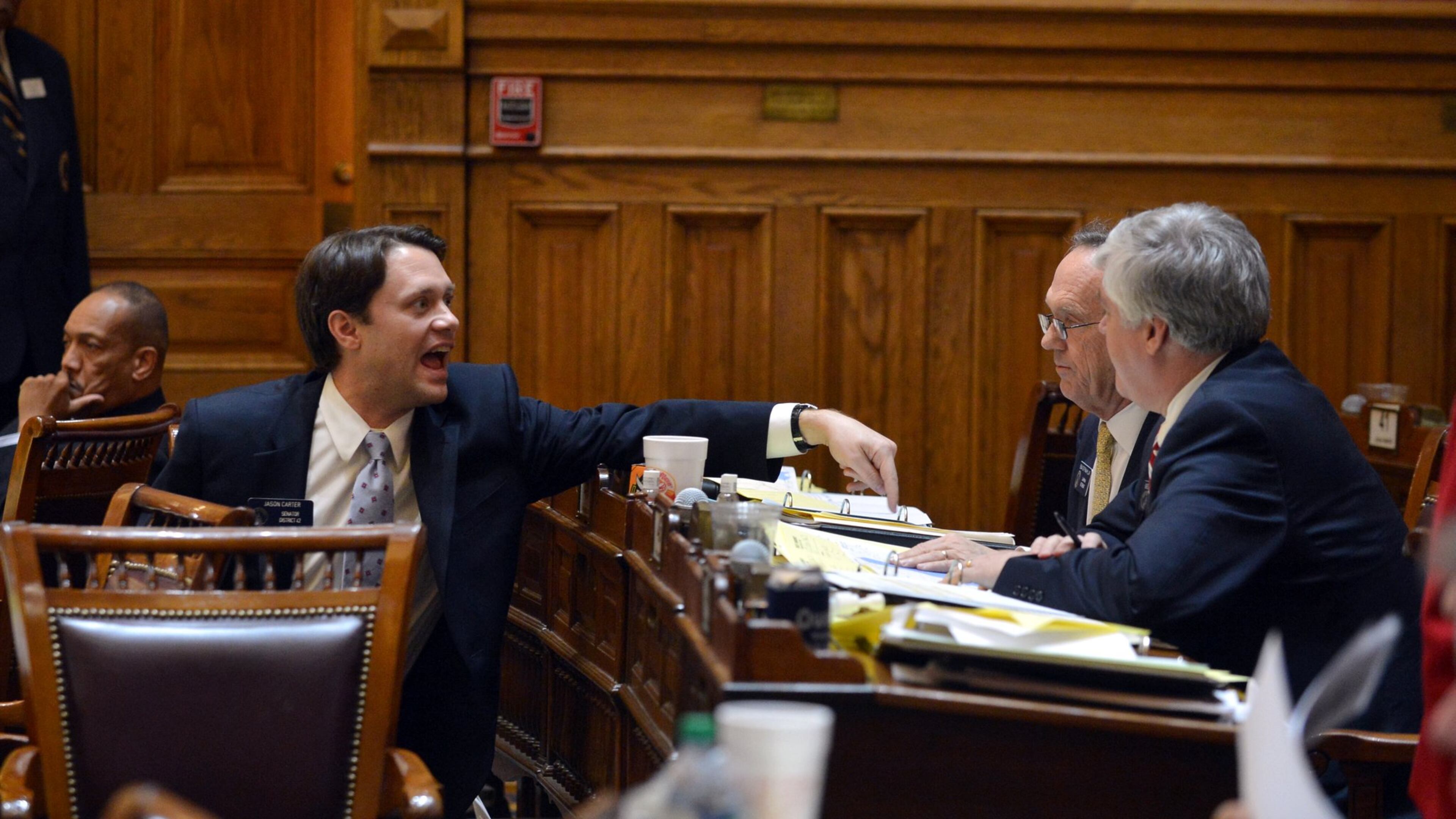2 potential new DeKalb cities dead until 2015

After a back-and-forth battle over potential borders, neither Lakeside nor Tucker got the OK on Monday to try to become DeKalb County’s newest cities this year.
The latest bid to subdivide the state’s third-largest county died in a packed committee room, with one of the General Assembly’s staunchest advocates of new cities saying this fight was so tough he won’t revisit trying again next year and may not even support other lawmakers’ efforts.
“What you’re basically telling 70,000 people is they don’t get the opportunity to vote this year,” said state Sen. Fran Millar, R-Dunwoody, who sponsored Senate Bill 270 to create Lakeside.
An updated deal cut over the weekend would have allowed Lakeside and Tucker to move forward in tandem for voters in those areas to decide on becoming cities in north-central DeKalb. Lakeside’s bill had already cleared the Senate and only needed House approval to land on the governor’s desk.
Unlike all other new cities in Georgia, Tucker was championed by a Democrat, though Republicans had advocated for cityhood for Tucker and Lakeside. House Bill 677 stalled out in committee and was revived only when the border dispute between Lakeside spilled into discussions on that city’s movement.
Monday, legislators decided they were not willing to change long-standing rules needed to make the two cities happen at the same time. The decision by the House Governmental Affairs Committee to hold off for a year on the new cities may have killed Lakeside for good, while reviving the fortunes of Tucker and existing DeKalb cities.
“It’s politics before the people because these people don’t listen,” a visibly angry Mary Kay Woodworth, who headed the Lakeside City Alliance, said moments after the measures died in the House Governmental Affairs Committee. “We’re done and we won’t be back.”
Tucker advocates, meanwhile, said they “absolutely” will pitch cityhood next year and are willing to work with any would-be Lakeside advocates as well as neighboring Clarkston and Stone Mountain to draw borders.
“If we have to compromise to be good neighbors, we did that and we will continue to do that,” said Frank Auman, the former DeKalb GOP chair who advocated for Tucker. “We want all of the conversations to take place.”
There was little conversation in Monday’s committee meeting. Cityhood supporters from all corners filled the meeting room, hoping the committee would create a way for both Lakeside and Tucker to end up on a ballot this year.
Border fights between the two had delayed clear boundaries, so the only solution for both to move required changes to long-standing House rules on local legislation.
The idea failed to win over several key House members, from state Rep. Mike Jacobs, R-Brookhaven, to House Rules Chairman John Meadows, R-Calhoun.
Meadows stalled the cityhood momentum last week, asking the cityhood bills be held until he was able to see how both could move ahead together.
He called any accusation to stop the cities “an absolute lie,” but admitted he wanted to ensure Tucker was able to advance alongside Lakeside.
He said of Tucker, “I feel like they got run over.”
That sentiment revealed fractures within the GOP, which has long championed new cities in Fulton, DeKalb and Gwinnett with arguments for more local control.
But the bruised feelings went well beyond political party or even the Northlake area that was at the heart of Lakeside and Tucker’s border dispute.
Stone Mountain residents and business leaders had begun complaining about the eastern edge of would-be Tucker. It called for taking in Stone Mountain Parkway, an industrial area that is part of an annexation plan for Stone Mountain.
Likewise, proponents of a city of Briarcliff, which would have taken in the southern segments of Lakeside and extended all the way to the Atlanta and Decatur line, said they were ignored in the two-city deal.
Now, those areas will become part of a discussion being advocated by state Rep. Mary Margaret Oliver, D-Decatur, and interim DeKalb CEO Lee May.
Last week, May created a 15-member task force charged, among other things, with carving up all of DeKalb County into cities either via annexations or new municipalities and, possibly, by creating townships. DeKalb has 11 cities in its borders, including parts of Atlanta.
“This delay is an opportunity for DeKalb County, to learn from others’ mistakes, to shrink our government as we begin to be responsible for fewer services,” May said. “We will likely have a fully incorporated county in the next few years, so let’s do it all at one time.”
If it does happen, it could happen as early as next year. The Governmental Affairs Committee is in discussion to scrap its rule that new cities must be under legislative consideration for two years, in a bid to move both Lakeside and Tucker along in 2015.
Lakeside, in its current form, may not be back, though. Millar remained visibly angry even after the meeting adjourned. He had pushed for the border deal between two cities but said Monday he was not sure he would sign off on Tucker’s creation, should it return.
“I don’t think the Senate has any appetite for any cities anymore, nor I do,” Millar said. “This is ridiculous.”


